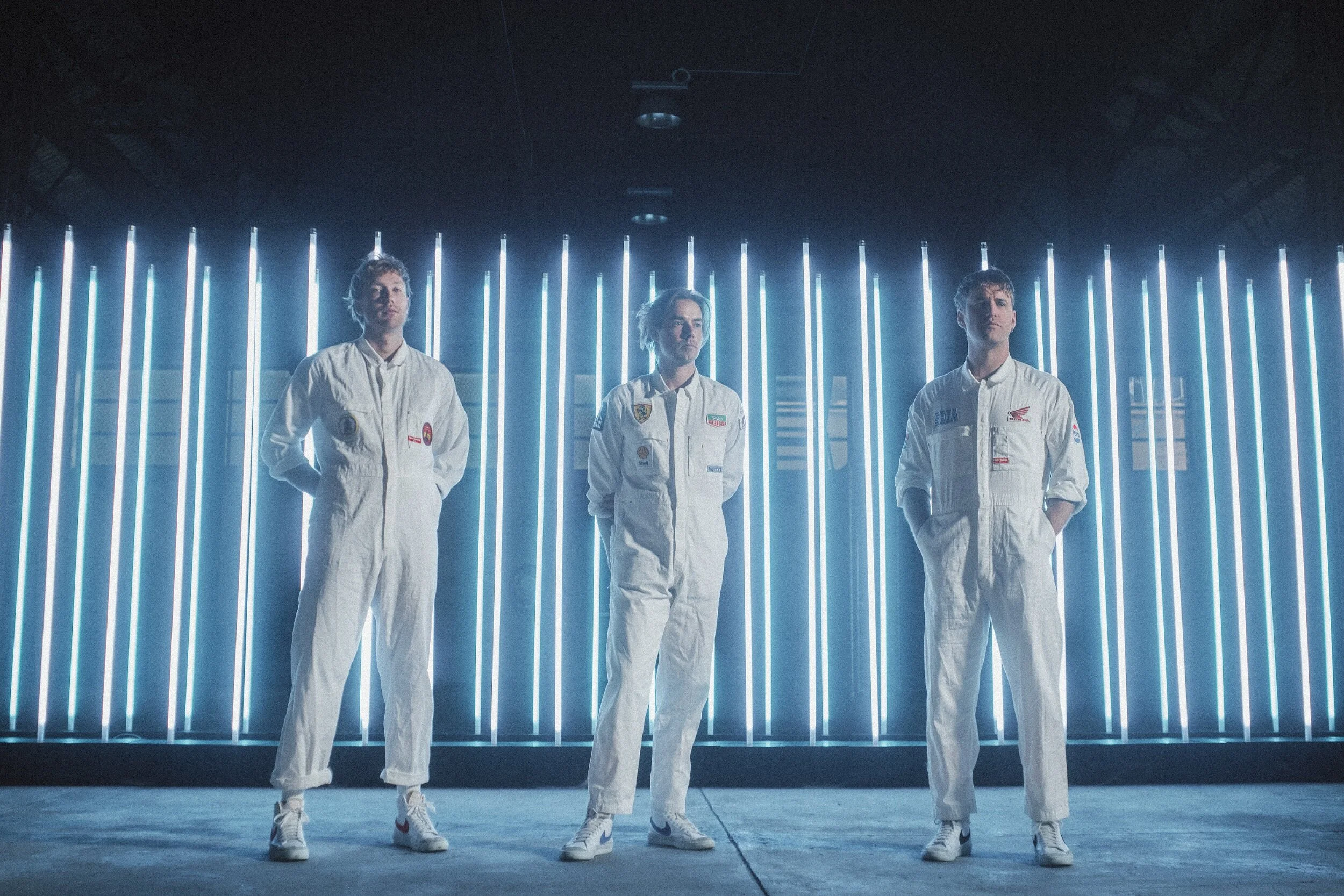Q&A with Crooked Colours
Crooked colours
Liberating Their Love Language
Western Australian alternative dance trio Crooked Colours have been quarantining in their native Fremantle working on new music. In celebration of the uniqueness of relationships, their newly released single "Love Language" off their third full-length album, to be announced, which follows Vera and Langata. It's a welcome glimpse of what's to come with Phil Slabber's whispery vocals, pulsing production, and keys from Leon Debaughn and thrilling percussion from Liam Merrett-Park.
In 2013, the trio started as house party DJs, later blending their musical genius of acoustic instruments with synthesizers in a product that balances both dance and chill escapism for any mood. With hits "Flow" and "Do It Like You" catapulting the group along with "Hold On" and “Never Dance Alone" featuring Ladyhawke, Crooked Colours have found their footing amongst top players. They were already touring with Rufus Du Sol and rescheduled dates alongside Big Wild, Bob Moses, and Jai Wolf in 2021. Having played at Bonnaroo, Firefly, Electric Forest, Life Is Beautiful, and CRSSD Festivals and known as go-to remixers on everything from Don Tolliver's "No Idea" to Big Wild's "City Of Sound," Crooked Colours are ready for a big breakout.
Drummer Liam Merrett-Park spoke with IndieWavves about the trio's rooting in musical instruments from a young age, their spectacular music video visuals, and why now is the best time for "Love Language."
IndieWavves: Liam, over the last few years, there's been a steady increase in electronic acts who play instruments live and who sing (wonderfully) on their recordings. Rufus Du Sol, Bob Moses, Elderbrook, KAYTRANADA, Toro Y Moi, and White Cliffs come to mind. When Crooked Colours formed, was your act and set-up in your current kind of configuration, or were you doing different things beforehand sonically?
Crooked Colours: Our sound has definitely changed and matured over the years. Initially, we had an electro-pop element, influenced by Van She, Cut Copy, and Miami Horror, then moved into a heavier stage with the likes of Crystal Castles and The Presets being significant contributors. Once we had learned more about production and were sure in ourselves, we were able to form our own sound that you hear today.
IW: We must talk about detail. On the song "All Eyes", there are faint "ahhs" as well as a tropical house-y effect that sounds like a jungle bird, and on "Flow", are these very organic-sounding guitars throughout the song, and at the very end, there is a faint twinkle of the guitar. Have you guys been playing your instruments since you were infants? It's clear you are all about your music's intricacies, and I think it's safe to say the fans love it.
CC: Good ears! Those are the types of easter eggs that we like to hear in songs, so we love to sprinkle them throughout our tracks. We have been playing music our whole lives. Phil has been an avid lover of music his entire life and would do acoustic sets around the area. Leon's mum taught him piano from an early age, and he went on to play some piano competitions, and my dad was a music teacher as well, so he taught me the drums and piano.
IW: Your videos are absolutely beautiful. The way you use water, color, lights, locations, cinematography. I imagine if you named yourselves Crooked Colours that you don't just hear music, but you see it. When writing a song, do you ever imagine the visual that will accompany it?
CC: Absolutely! Once the song has taken shape, you have a subconscious feeling about what the visuals will look like. We are so lucky to have worked with incredible directors and artists who have helped put those visions into reality, particularly Matsu, who directed the "Love Language" film clip with the help of Beamhacker. They went above and beyond what we expected.
IW: New remixes of "Love Language" are out this month by SNBRN and IMAD. What has to click on a song for you to sign off on a remix?
CC: Insane remixes by both of them, by the way. Sometimes you do a remix or get a remix back, and it clicks, and other times it doesn't. We have definitely spent time trying to craft a remix that felt forced or unnatural, and you can feel it, but that feeling when you have heard a track once and know exactly how you want to flip it when that works out, it's such a great feeling.
IW: On the latest single, "Love Language," like many of your songs like "Come Back To You", you are often talking about love and relationships. With everything going on right now, why is it so important to you to celebrate relationships - romantic, friendship, or otherwise?
CC: We just wanted to bring about a little positivity in an otherwise negative space. In Australia, especially in Melbourne, we have had really intense lockdowns where it has been months since people have had any meaningful human interaction. So, we wanted to celebrate those relationships that we rely on but maybe didn't realize how much.
Written by Michael Menachem
